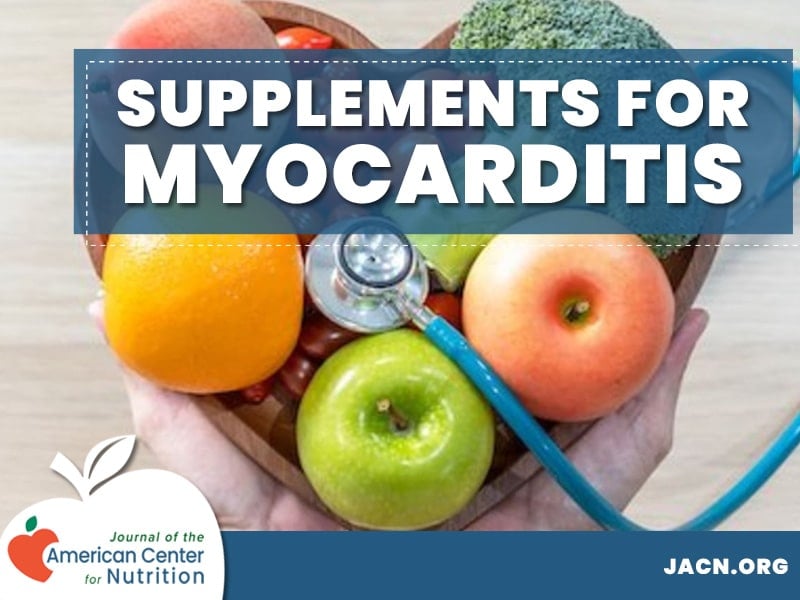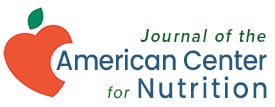Nutritional Supplements for Treating Myocarditis
The human heart has a layer of surrounding muscles called the myocardium. Myocarditis is inflammation of the heart muscle. The inflammation may occur from autoimmune disorders or immune responses to a viral infection. Myocarditis can result in chest pain, arrhythmia (rapid heart rhythms), fatigue, shortness of breath, and muscle weakness, causing reduced blood flow to critical bodily functions.
While there is no cure for myocarditis, modern clinical studies show promising results regarding natural supplements for the treatment of viral myocarditis.
Viral myocarditis, also called acute myocarditis, refers to fast onsetting myocarditis, typically caused by an infection in the body. Another type of myocarditis, chronic myocarditis, typically re-occurs due to underlying autoimmune conditions. The final type, lymphocytic myocarditis, occurs when lymphocytes (white blood cells) enter the heart muscle, potentially causing sudden death.
Supplements That Have Been Shown to Improve Myocarditis
Because no cure exists for myocarditis itself, doctors typically prescribe treatments to treat the underlying condition causing the inflammation. Various supplements, like quercetin, CoQ10, vitamin C, and ginger, all show strong potential for improving myocarditis.
If you have a viral infection or acute myocarditis, natural supplements may help reduce inflammation. Patients with chronic or further-developed conditions may require more advanced treatment methods. Speak with a medical professional before beginning any supplements or treatments for your myocarditis.
Quercetin
Quercetin is a type of plant pigment called a flavonoid that gives many flowers, fruits, and vegetables their color. Quercetin has antioxidant and anti-inflammatory properties that can reduce the level of free radicals in your body, which cause cellular damage related to various conditions like heart disease [1].

High levels of free radicals can also increase your body’s inflammation, potentially worsening myocarditis. Quercetin can reduce free radicals, ultimately reducing inflammation in critical areas, like your heart [1].
Additional clinical research on rats discovered that quercetin offers cardiovascular protection against autoimmune myocarditis progression by suppressing the oxidative and endoplasmic stress typically associated with myocarditis symptoms [2]. Quercetin can suppress myocardial endothelin-1 and control the modulation of mitogen-activated protein kinases (MAPK) signaling to ultimately slow the progression of myocarditis [2].
You can find quercetin in various citrus fruits, onions, parsley, apples, red wine, tea, and sage. Many companies also sell quercetin supplements for direct and controlled consumption.
CoQ10
Coenzyme Q10 (CoQ10) is an antioxidant in charge of your body’s growth. Human bodies naturally produce CoQ10, though the levels diminish as you age. The fat-soluble vitamin-like supplement generates cell energy and produces adenosine triphosphate (ATP), which transfers energy between cells and protects them from oxidative damage [3].
Low CoQ10 levels can increase oxidative stress, inflammation, and cardiovascular risks. In a clinical study of 641 participants, those taking CoQ10 saw fewer heart complications and hospitalizations than the control group [4]. Increased CoQ10 levels can improve cell energy, heart function, and oxidative damage, ultimately improving myocarditis [5].
Another clinical study on mice found that pretreatment with CoQ10 can reduce viral myocarditis’s severity and decrease oxidative stress [6]. While CoQ10 can’t prevent or cure myocarditis, it may prevent you from developing the life-threatening symptoms associated with heart inflammation. Regulated CoQ10 levels can also improve fertility, skin elasticity, headaches, exercise performance, diabetes, cancer progression, cognitive function, and asthma [7] [8] [9] [10] [11] [12] [13] [14].
Vitamin C
Another one of the most researched natural supplements for treatment of viral myocarditis is Vitamin C (ascorbic acid), an antioxidant that helps rid your body of excess free radicals. The water-soluble vitamin in citrus fruits and various vegetables stimulates neutrophil migration, improves oxidant and phagocytosis generation, and kills microbes [15]. Most importantly, the vitamin boosts the cellular functions of the adaptive and innate immune system, helping your body fight off viruses, bacteria, and infections [15].
When combating any infection, your body’s immune system uses vitamin C to fight the dangerous microorganisms, resulting in low vitamin C levels. Increasing vitamin C levels with supplemental intake can boost your immune system and help you fight off the virus-causing myocarditis.
A study on the effectiveness of vitamin C in treating myocarditis found that the supplement protects the mitochondrion in charge of producing cell energy, increases heart muscle metabolism, and reduces inflammation [16]. The researchers concluded that vitamin C could aid in myocarditis prognosis. You can take vitamin C in capsule form or incorporate it into your diet with vitamin C-rich foods, like citruses, bell peppers, strawberries, tomatoes, white potatoes, and cruciferous vegetables.
Ginger
Many cultures rely on ginger root for spice, flavor, and herbal remedies. Ginger root comes from the ginger plant. You typically must grind, pickle, or cure the root in some way for proper digestion.
Ginger offers various antioxidant and anti-inflammatory effects that can improve health conditions like myocarditis [17]. Ginger’s ability to reduce inflammation can help your body fight off various viral infections that could cause myocarditis. Ginger can also inhibit bacterial growth, particularly of drug-resistant strains of bacteria [18].
A study on diabetic rats found that ginger can protect the heart from dangerous inflammatory conditions and fibrosis (tissue scarring) [19]. Additional research discovered that ginger could reduce heart disease risks [20]. Ginger targets health in many ways, acting as a preventative and defensive agent in various conditions.
You can consume the supplement by adding freshly ground (not powdered or dried) ginger to your meals, drinking ginger root tea, or taking a ginger supplement.
Other Heart-Healthy Foods That May Help Myocarditis
Aside from quercetin, CoQ10, vitamin C, and ginger, many other foods can support cardiovascular and immune system health. While natural remedies and diet changes may not cure or heal you of the condition, they can nourish your body with what it needs to recover faster.
Myocarditis ranges in severity, reaching life-threatening levels in some patients, so consuming foods that slow its progression could help. Consult with a medical professional about your best options. Some heart-healthy foods and natural supplements for treatment of viral myocarditis include:
- Astragalus: Astragalus is a flowering plant that can reduce inflammation and oxidative stress while helping your body fight off viral infections associated with myocarditis [21].
- Carnitine: Carnitine is an amino acid that transports fatty acids to cell mitochondria. Clinical research found that controlled carnitine doses can prevent or relieve myocarditis and decrease any post-inflammation damage surrounding the heart that could otherwise lead to heart failure [22].
- Green tea: Green tea is a popular health beverage packed with the amino acid L-theanine, catechins, and bioflavonoids. This tea’s catechins can improve artery elasticity and heart health, while the bioflavonoids reduce blood clot risks [23] [24]. Research supports the potential to use green tea’s bioflavonoids for various inflammation-related heart conditions, like myocarditis [24].
- Motherwort: Motherwort is a mint-like herb that can reduce inflammation, blood pressure, heart disease risks, and anxiety in myocarditis patients [25] [26] [27].
- Lily of the valley: Lily of the valley is a flowering plant that can reduce heart inflammation and chest pain. While many cultures rely on this herbal remedy, not much clinical research definitively proves its effectiveness, so speak with a doctor before taking it.
- Reishi mushrooms: Reishi mushrooms are considered adaptogenic mushrooms, which means they have wellness benefits beyond their nutritional value. Reishi mushrooms can help support your immune system, so you can fight various viruses, bacteria, or infections that could result in myocarditis [28]. Research also shows that Reishi mushrooms can reduce inflammation, lessening the effects of myocarditis [29].
- Neem leaf: Neem leaves come from the neem tree, and you can consume them either topically or orally. Neem leaves offer ample health benefits, including antibacterial, antioxidant, and antiviral properties that can protect your heart from dangerous infections [30].
Aside from the specific supplements above, you can also try incorporating nutrient-dense foods into your diet. Nutrient-packed diets support your cells with the vital energy they need to fight off infections, reduce inflammation, and heal. Some foods you could try incorporating into your daily diet include:
- Green leafy vegetables (spinach, kale, arugula, etc.)
- Berries
- Carrots
- Broccoli
- Cauliflower
- Avocado
- Asparagus
- Mushrooms
- Flax seeds
- Almonds
- Chia seeds
- Beans and legumes
- Olive oil
- Fatty fish (in limited amounts to reduce high mercury intake)
- Green tea
- Grapes
- Tomatoes
What Foods Should I Avoid with Myocarditis?
Selecting natural supplements for treatment of viral myocarditis can feel overwhelming, so you may want to start by learning which foods you should avoid. Certain nutritionally deficient foods starve your body of the fuel it needs to heal.
Many ingredients found in junk food can also worsen your condition. For example, foods with high salt content can draw excess fluid into your bloodstream, forcing your heart to work harder. High-sodium diets can increase blood pressure and heart attack risks [31].
Other activities, like smoking and alcohol, can also increase blood pressure and inflammation, worsening your cardiovascular health [32]. Research shows that highly processed foods with preservatives and unnatural additives increase heart inflammation due to their high sugar and salt content. If you consume such foods, try balancing the meal with potassium, which can help your body maintain healthy sodium levels [33].
In general, you should try to avoid the following items:
- Processed gluten
- Sugar
- Alcohol
- Caffeine
- Additive substances
- Processed foods
- High-sodium foods
- Smoking of any kind
What Else Can I Do?
Aside from following a healthy diet, you can practice various precautionary steps to protect your health. Viral myocarditis occurs from contracting a viral illness, so if you can reduce your risk of developing harmful infections, you may be able to protect your heart’s health. To prevent infections or help your body recover after you’ve contracted one:
- Practice proper hygiene: Wash your hands throughout the day, especially when entering public areas, like gyms, hospitals, restaurants, training facilities, etc. Try to avoid contact with other people or non-sanitized items. Be careful not to touch your face, eyes, nose, mouth, or ears after touching any public surfaces until you can adequately wash your hands.
- Wear a mask in crowded locations: You can reduce your chances of contracting any illness by wearing a face mask in any public or crowded place. Be sure to dispose of or wash masks after each use to reduce potential contamination.
- Reduce stress levels: Emotional and social stress can strain your heart, especially if you suffer from anxiety. If you have myocarditis, excess life stresses can worsen your condition and make it harder for your body to heal. Practice stress relief techniques to keep your heart rate at a healthy level.
- Practice caution when exercising: Similar to stress, exercise increases your heart rate, which can worsen myocarditis. If you have myocarditis, you should speak with a medical professional before continuing any of your regular physical activity. Once you return to workouts, proceed with caution.
How Long Does Myocarditis Take to Heal?
Most myocarditis cases can self-resolve within six weeks, though you should plan on restricting physical activities for three to six months to allow your heart to heal fully. Severe cases can last several months, requiring more intense treatment regimens, like corticosteroids, angiotensin-converting enzyme inhibitors, beta-blockers, diuretics, and more. Chronic cases may recur years later, causing similar symptoms of chest pain, inflammation, and shortness of breath.
Natural Recovery from Myocarditis is Possible
Clinical research supports the effectiveness of taking natural supplements for treatment of viral myocarditis. Herbal remedies and natural compounds like ginger, CoQ10, vitamin C, and quercetin may reduce inflammation around the heart while supporting immune functions so that you can fight off the virus while healing.
Before beginning treatments, speak with a medical professional about your best options. Chronic and lymphocytic myocarditis occur from underlying, dangerous conditions that may require much different treatment methods than viral myocarditis. Luckily, recovering naturally from viral myocarditis is possible with research-backed herbal remedies.
REFERENCES
- https://pubmed.ncbi.nlm.nih.gov/18417116/
- https://pubmed.ncbi.nlm.nih.gov/22145946/
- https://pubmed.ncbi.nlm.nih.gov/25126052/
- https://pubmed.ncbi.nlm.nih.gov/8241697/
- https://pubmed.ncbi.nlm.nih.gov/26512330/
- https://www.ncbi.nlm.nih.gov/pmc/articles/PMC6131403/
- https://pubmed.ncbi.nlm.nih.gov/23912751/
- https://pubmed.ncbi.nlm.nih.gov/10416055/
- https://pubmed.ncbi.nlm.nih.gov/17355497/
- https://pubmed.ncbi.nlm.nih.gov/19644406/
- https://pubmed.ncbi.nlm.nih.gov/26413493/
- https://pubmed.ncbi.nlm.nih.gov/17505263/
- https://pubmed.ncbi.nlm.nih.gov/18560133/
- https://pubmed.ncbi.nlm.nih.gov/16873952/
- https://www.ncbi.nlm.nih.gov/pmc/articles/PMC5707683/
- http://europepmc.org/article/cba/563546
- https://www.ncbi.nlm.nih.gov/pmc/articles/PMC3665023/
- https://www.ncbi.nlm.nih.gov/pmc/articles/PMC341820/
- https://pubmed.ncbi.nlm.nih.gov/33162372/
- https://www.ncbi.nlm.nih.gov/pmc/articles/PMC4277626/
- https://www.ncbi.nlm.nih.gov/pmc/articles/PMC5877661/
- https://pubmed.ncbi.nlm.nih.gov/6483504/
- https://www.ncbi.nlm.nih.gov/pmc/articles/PMC2748751/
- https://pubmed.ncbi.nlm.nih.gov/31309484/
- https://pubmed.ncbi.nlm.nih.gov/19514995/
- https://pubmed.ncbi.nlm.nih.gov/21648406/
- https://pubmed.ncbi.nlm.nih.gov/20839214/
- https://www.ncbi.nlm.nih.gov/pmc/articles/PMC4684115/
- https://www.ncbi.nlm.nih.gov/pmc/articles/PMC1160565/
- https://pubmed.ncbi.nlm.nih.gov/15777222/
- https://www.cdc.gov/heartdisease/sodium.htm
- https://www.ncbi.nlm.nih.gov/pmc/articles/PMC6527044/
- https://www.cdc.gov/salt/potassium.htm

